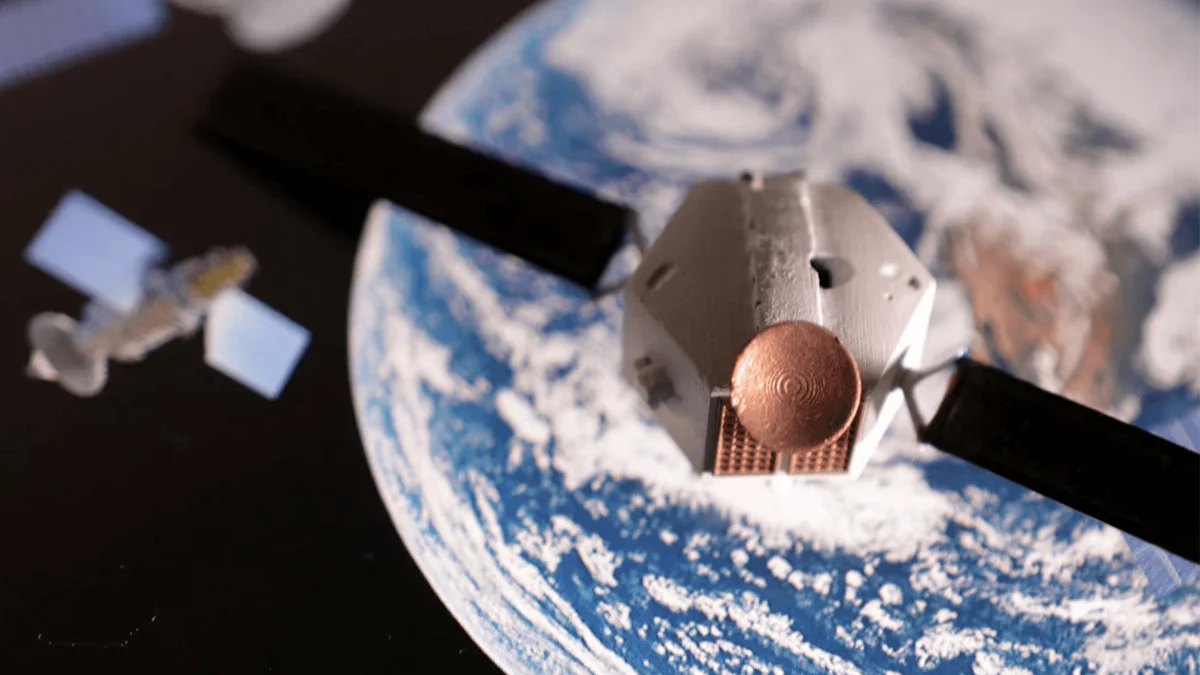Necessary Always Active
Necessary cookies are required to enable the basic features of this site, such as providing secure log-in or adjusting your consent preferences. These cookies do not store any personally identifiable data.
|
||||||
|
||||||
|
||||||
|

Elon Musk’s Starlink satellite internet service is facing stiff competition as Jeff Bezos and China’s state-backed rivals challenge its dominance of high-speed internet service. According to Reuters, SpaceSail, a Shanghai-based satellite internet firm, is getting ready to enter the Brazilian and Kazakhstan markets. The company is also talking to more than 30 countries.
Brazil is also in discussions with project Kuiper Internet service initiated by Bezos and Telesat, a Canadian satellite internet firm.
Musk-owned Starlink Communications has been launching satellites into low-Earth orbit (LEO), an altitude that’s less than 2,000km away. All its competitors have been installing satellites at higher altitudes. At the low altitude, satellites are extremely efficient at transmitting data. This enables the company to take nex-gen satellite connectivity to communities in remote areas, militaries during war, and seafaring vessels.
“The space world is moving fast and busy experimenting. Pioneers are enjoying this relative freedom and are shaping it to their advantage to claim key positions before rules become more stringent – like the wild west,” Global Head of Space at Analysys Mason Consultancy, Antoine Grenier said.
Beijing sees Musk’s dominance in space as a big threat as it finances military research, invests heavily in rivals and tracks satellite constellations. According to tech consulting firm Analysys Mason, China launched 263 LEO satellites last year alone.
The Brazilian government has welcomed the emerging Starlink competition as the country seeks to bring high-speed internet connection to communities living in far-flung areas. The south-American country has previously had a standoff with Musk over politics and commerce.
The attention of military researchers in China has been captured by Starlink’s fast expansion and its use by the Ukrainian military. This has prompted significant financing of rival satellite networks by the Chinese government.
For instance, Hongqing Technology is working on a 10,000 satellite constellation. Founded in 2017, this company raised about 340 million yuan this month from investors who are mostly affiliated to the state.
In 2024, a financing round that was led by an investment fund that’s owned by the state raised about $930 million for SpaceSail. The focus of this fund is to upgrade China’s manufacturing capacity. Researchers in China, particularly those that are linked to the People’s Liberation Army are increasingly interested in satellite internet.
In 2023 alone, China published 2449 patents relating to LEO satellite technology, compared to the 162 published in 2019. Majority of these patents related to low-latency communication and cost-efficient networks.
Some of China’s published research hits out at Starlink with one of them terming Musk’s system a threat to data, network, and military security. The Chinese government is creating tools to monitor and track Starlink’s satellites. Last month, researchers from two institutes indicated that they had developed an algorithm for monitoring huge constellations like Starlink.
“With the growing trend of space militarization, developing tools to monitor and track these mega constellations is critically important,” the researchers in one of the studies published in the Chinese engineering journal.
Few Starlink rivals are as ambitious as China’s SpaceSail. Controlled by the municipal government of Shanghai, this satellite internet company plans to deploy up to 648 LEO satellites by the end of 2025 and about 15,000 satellites by the year 2030. Currently, Starlink has deployed about 7000 satellites and is targeting to launch 42000 more by the end of this decade.
“The endgame is to occupy as many orbital slots as possible,” Space Technology Expert Chaitanya Giri said.
Last year, a Chinese newspaper reported that SpaceSail “capable of transcending national boundaries, penetrating sovereignty and unconditionally covering the whole world, a strategic capability that our country must master.”
China has three other satellite internet constellations under development. Beijing plans to launch an additional 43,000 LEO satellites in the next decades. China also plans to invest in rockets that have the capacity to carry multiple satellites.